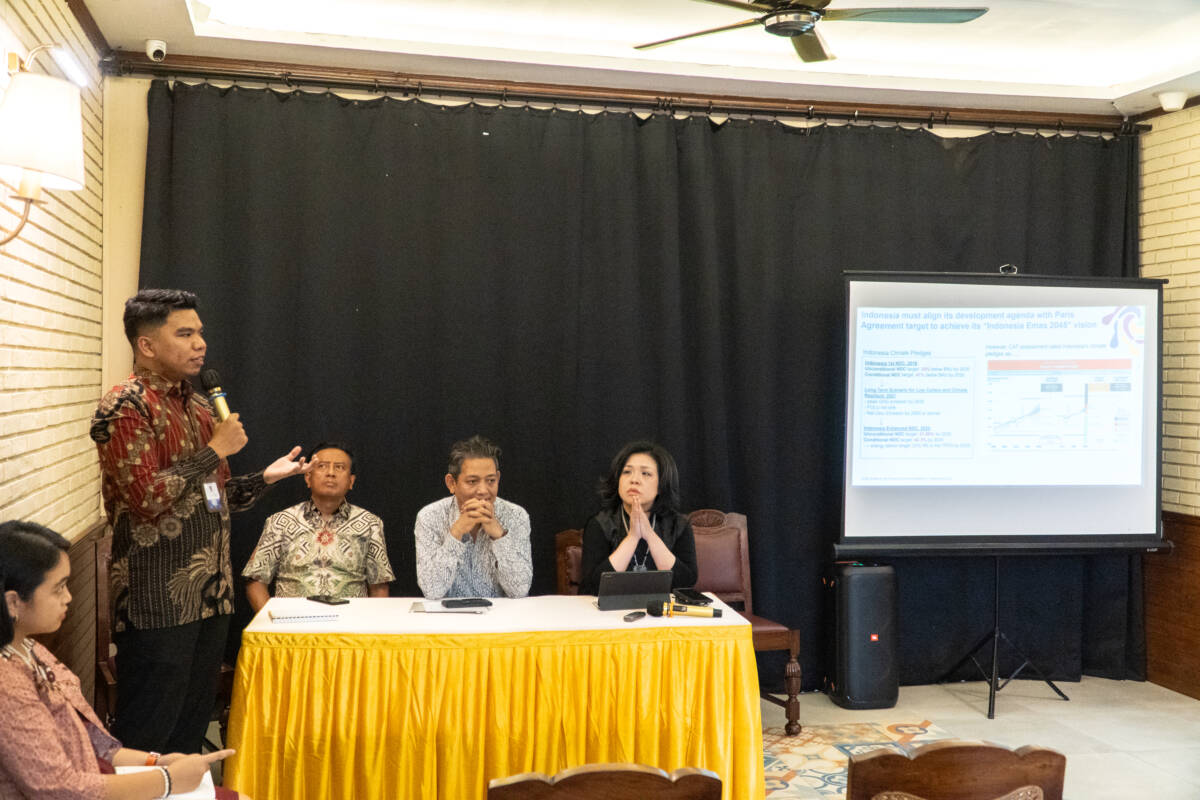Jakarta, September 24, 2024 – Addressing the climate crisis requires international partnerships to accelerate Indonesia’s energy transition to renewable energy. The Institute for Essential Services Reform (IESR) highlights the need for Indonesia to actively create and seize opportunities for cooperation with countries that are rapidly advancing renewable energy, such as China, to share technology and attract investment.
Indonesia and China have shared a cooperative relationship for 75 years, with closer ties since the launch of the Belt and Road Initiative (BRI) or Silk Road cooperation in 2013. Reflecting this strengthened collaboration, Chinese investment in Indonesia’s energy sector reached USD 8.9 million, or approximately IDR 93 trillion, from 2006 to 2022. Of this investment, 86 percent has been allocated to fossil energy, while 14 percent has been directed towards renewable energy.
Dino R. Kusnadi, Functional Diplomat Associate Expert at the Ministry of Foreign Affairs, stated that within the Belt and Road Initiative (BRI), China has prioritized Indonesia as a key partner. According to him, as a country adhering to the principle of free and active international cooperation, Indonesia has the flexibility to choose its partners, as long as they provide added value in terms of technology, infrastructure, and economic growth.
“China and Indonesia have complementary cooperation, with Indonesia being China’s priority partner. As long as it brings added value, the partnership will continue. However, Indonesia must enhance its capacity to avoid lagging behind China,” Dino explained during a media briefing organized by IESR, titled Potential Indonesia-China Collaboration in Green Economy Development and Clean Energy Cooperation on Tuesday (24/9).
Arief Rosadi, Program Manager of Climate and Energy Diplomacy at IESR, noted that the opportunity to increase China’s renewable energy investment in Indonesia is wide open. This aligns with China’s commitment to supporting the development of environmentally friendly energy in developing countries. Additionally, Indonesia’s commitment to achieving net-zero emissions (NZE) by 2060 or sooner strengthens the potential for this collaboration.
“The IESR study found that, both technically and economically, Indonesia can accelerate its goal of achieving zero carbon emissions by 2050 through decarbonizing the energy sector. Strengthening cooperation with China, particularly within the framework of the Belt and Road Initiative (BRI), could help Indonesia explore innovative mechanisms and financing structures to scale up renewable energy projects,” Arief said.
He added that, according to IESR’s study, Indonesia will need an investment of USD 1.3 trillion to reach zero carbon emissions by 2050, which will be allocated across various renewable energy technologies. This substantial investment requires strong international collaboration, including with China.
Agung Marsallindo, Southeast Asia Energy Transition Project Coordinator at IESR, stated that China’s support for Indonesia’s energy transition could take the form of technology and manufacturing collaboration, as well as investment. He noted that China’s green investment is likely to focus on financially viable renewable energy projects, such as solar and wind power. According to Agung, Indonesia has sufficient resources for manufacturing solar power plants (PLTS), backed by low production costs.
“Enhancing cooperation between Indonesia and China in the renewable energy sector is essential to promote green and sustainable development. This could position Indonesia as a renewable energy manufacturing hub, support industrial decarbonization, and create a framework for bankable, long-term green project financing,” Agung explained.

